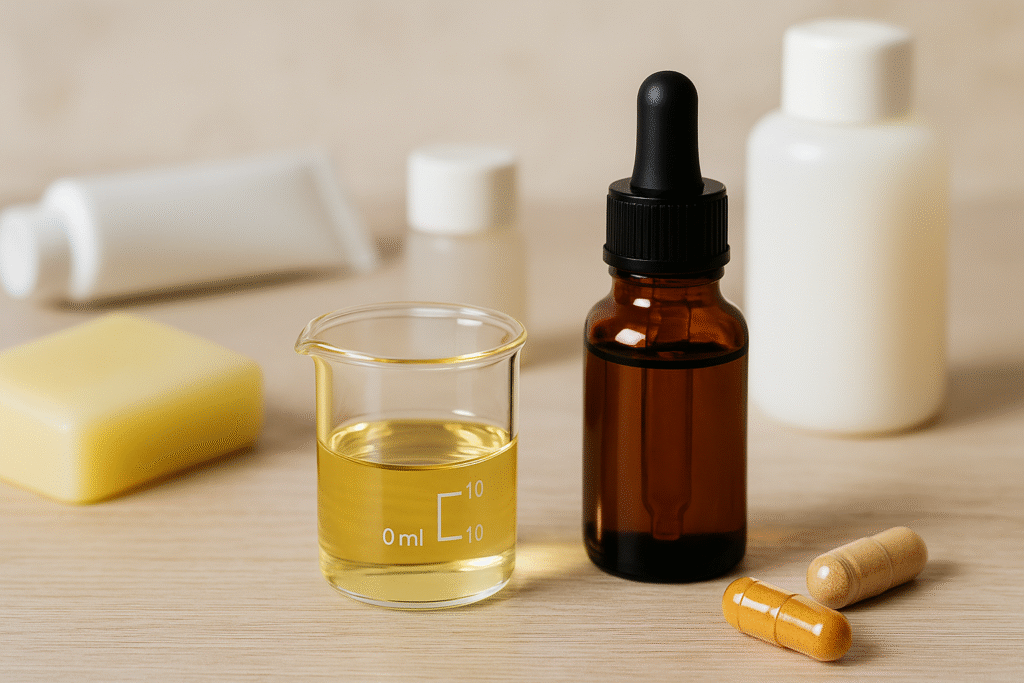Between protection & irritation - what's in your care products?
Cosmetic products are with us every day - whether cream, shampoo or make-up. But many people don't realise this: Without Preservatives many of these products would hardly be long-lasting. At the same time, it is precisely these additives that often cause uncertainty, especially for sensitive skin. In this article, you will find out which Cosmetic preservatives are considered safe, which ones are discussed critically and what you should really look out for when buying.
Why do cosmetics need preservatives?
Care products contain water - and therefore the ideal breeding ground for bacteria, mould and yeasts. Preservatives prevent microorganisms from multiplying in your favourite cream and thus protect you from skin irritation or infections.
Objectives of preservatives:
- Extension of shelf life
- Protection against contamination
- Ensuring hygienic use
- Stability of the product over weeks and months
Frequently used preservatives in cosmetics
✅ Common & largely harmless substances:
- Phenoxyethanol - Well tolerated in low dosage
- Potassium sorbate (potassium sorbate) - also used in food
- Sodium benzoate (sodium benzoate) - Naturally occurring in fruits
- Dehydroacetic Acid - Mild preservative permitted in natural cosmetics
- Benzyl alcohol - Component of essential oils, authorised in natural cosmetics
⚠️ Critically discussed preservatives:
- Parabens (e.g. methylparaben, propylparaben)
→ Suspected hormonal effect, partially restricted in the EU - Formaldehyde releasers (e.g. DMDM hydantoin, imidazolidinyl urea)
→ Irritant and potentially allergenic - Isothiazolinones (e.g. methylisothiazolinone, MIT)
→ High allergen potency, usually prohibited in leave-on products
Natural cosmetics & preservation: is it possible without?
Natural cosmetics do not contain many synthetic preservatives, but use alternatives such as:
- Essential oils with an antimicrobial effect (e.g. rosemary, tea tree)
- Alcohol in small doses (e.g. bioethanol)
- Fermented plant extracts
- Airtight packaging (e.g. airless dispensers) to reduce germ contamination
Important: Natural cosmetics also need to be preserved - otherwise they would only keep for a few days!
What you should look out for when buying
🔍 Check INCI list
Labelling such as "paraben-free" or "preservative-free" is not always clear. Pay attention to specific ingredients.
🧪 Use certifications
Seals such as COSMOS, NATRUE or BDIH help to recognise compatible and tested products.
⏳ Note shelf life
Products with a short PAO symbol (e.g. "6M") should be used up quickly after opening.
👩🔬 Observe irritations
Not every preservative is bad per se - but the skin reacts individually. If you experience a burning sensation or rash: stop using the product.
Conclusion: Cosmetic preservatives - sensible, but with a sense of proportion
Preservatives are essential for safe, long-lasting cosmetics. The challenge lies in the right amount and the selection of skin-friendly substances. If you pay attention to quality, read INCI lists and use certified brands, you don't have to be afraid of preservatives - you can enjoy your skincare consciously and safely.
